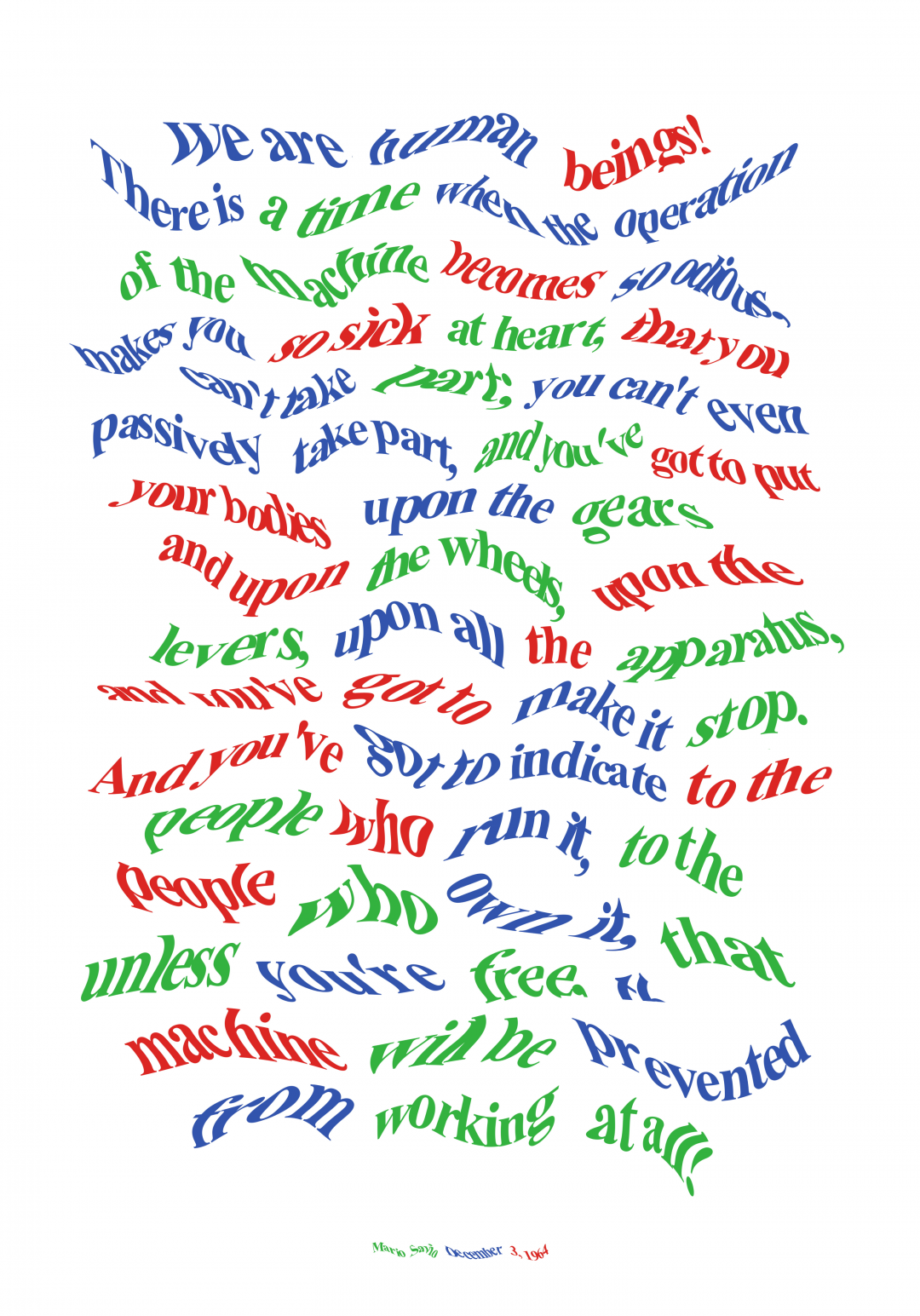
We Are Human Beings connects two contrasting attitudes towards information technology as a mean of control. The text derives from the founding manifesto of the Free Speech Movement, pronounced by Mario Savio at Berkeley in 1964. In his perspective, the machine was the dehumanized wing of a technocratic society. Computers and punch cards (those early devices to store data) were contributing to turn citizen in mere numbers. One way to protest against this was to punch holes through the punch cards in the shape of letters that the machine couldn’t read.
After more than forty years CAPTCHAs were developed. Universally adopted as a tool to discern humans from bots, they consist of a series of alphabetic glyphs that have undergone various distortions generated by a computer. The user is asked to face a problem that the machine cannot solve and spam is prevented.
For the protest movement of the ‘60s, punch cards were a symbol of alienation, therefore the conversion to a system of signs understood by human beings was an act of revenge. On the contrary, CAPTCHAs are means of access to the machine. The machine is now the one who judge the human nature of the user, while the user relates to it performing a mechanical process. There is neither ideological nor political claim in this action, it only works as a procedure for identification.